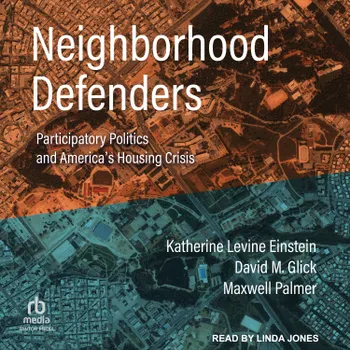Since the collapse of the housing market in 2008, demand for housing has consistently outpaced supply in many US communities. The failure to construct sufficient housing—especially affordable housing—in desirable communities and neighborhoods comes with significant social, economic, and environmental costs. This book examines how local participatory land use institutions amplify the power of entrenched interests and privileged homeowners. The book draws on sweeping data to examine the dominance of land use politics by "neighborhood defenders"—individuals who oppose new housing projects far more strongly than their broader communities and who are likely to be privileged on a variety of dimensions. Neighborhood defenders participate disproportionately and take advantage of land use regulations to restrict the construction of multifamily housing. The result is diminished housing stock and higher housing costs, with participatory institutions perversely reproducing inequality.
Neighborhood Defenders : Participatory Politics and America's Housing Crisis
Starte deine 30-tägige kostenlose Probezeit
- Voller Zugriff auf Hunderttausende von Hörbüchern und E-Books in unserer Bibliothek
- Erstelle bis zu 4 Profile – inkl. Kinderprofile
- Lies und höre offline
- Abos ab CHF 13.95 pro Monat

Neighborhood Defenders : Participatory Politics and America's Housing Crisis
Since the collapse of the housing market in 2008, demand for housing has consistently outpaced supply in many US communities. The failure to construct sufficient housing—especially affordable housing—in desirable communities and neighborhoods comes with significant social, economic, and environmental costs. This book examines how local participatory land use institutions amplify the power of entrenched interests and privileged homeowners. The book draws on sweeping data to examine the dominance of land use politics by "neighborhood defenders"—individuals who oppose new housing projects far more strongly than their broader communities and who are likely to be privileged on a variety of dimensions. Neighborhood defenders participate disproportionately and take advantage of land use regulations to restrict the construction of multifamily housing. The result is diminished housing stock and higher housing costs, with participatory institutions perversely reproducing inequality.
Sprecher*in:
Format:
Dauer:
Sprache:
Englisch